
OREGON RAFTING FOR GRIEVING TEENS
The Oregon Rafting course for grieving teens is a unique program specifically designed for students coping with the death of a loved one. Participants experience grief-work activities woven into the traditional Outward Bound curriculum while exploring some of Oregon’s most beautiful and rugged terrain. The first days of the trip will be spent on the Wild & Scenic Deschutes River building critical skills in teamwork and camp craft. This experience will serve as the foundation as you continue your journey, learning paddling skills, river hydrology, raft captaining, and safety. The course also includes an emphasis on leadership, character development, and an ethic of service. You do not need to have any previous experience, and will be taught necessary skills, including challenges such as navigating through rapids, swimming in cold water, paddling into headwinds, and more. Arriving physically fit and excited for the opportunity for personal development will enhance your experience and ultimately allow you to take full advantage of the expedition.
Participants begin to build an inclusive, supportive “crew” on day one as they join in a nightly discussion circle, acknowledge their shared losses, and begin the healing process. As they tackle problem solving challenges and engage in high impact activities such as rock climbing or ropes courses, students experience moments of self discovery and also reinforce their new community of support – their grieving crewmates. Students are encouraged to share their stories and insights on a daily basis as they participate in meaningful grief rituals as well as grief-centered reflection activities designed to help students understand how their experiences thus far might translate to coping skills back home. During the final debrief students identify continued, healthy support mechanisms and a positive network of peers who they may call on in the future.
Photo: Course Camera
Course Information
Dates: August 13-19, 2024
Days: 7
Ages: 14 - 17
Tuition & Fees: $2,800
This course has a sliding-scale tuition model. If paying the full tuition is not within your means, we have the funding to support you. In your application materials you will be asked to share your requested level of financial need. If you can pay full or a portion of the tuition, we appreciate you doing so.
To learn about the application process, view our Planning page or contact our Student Services Team.
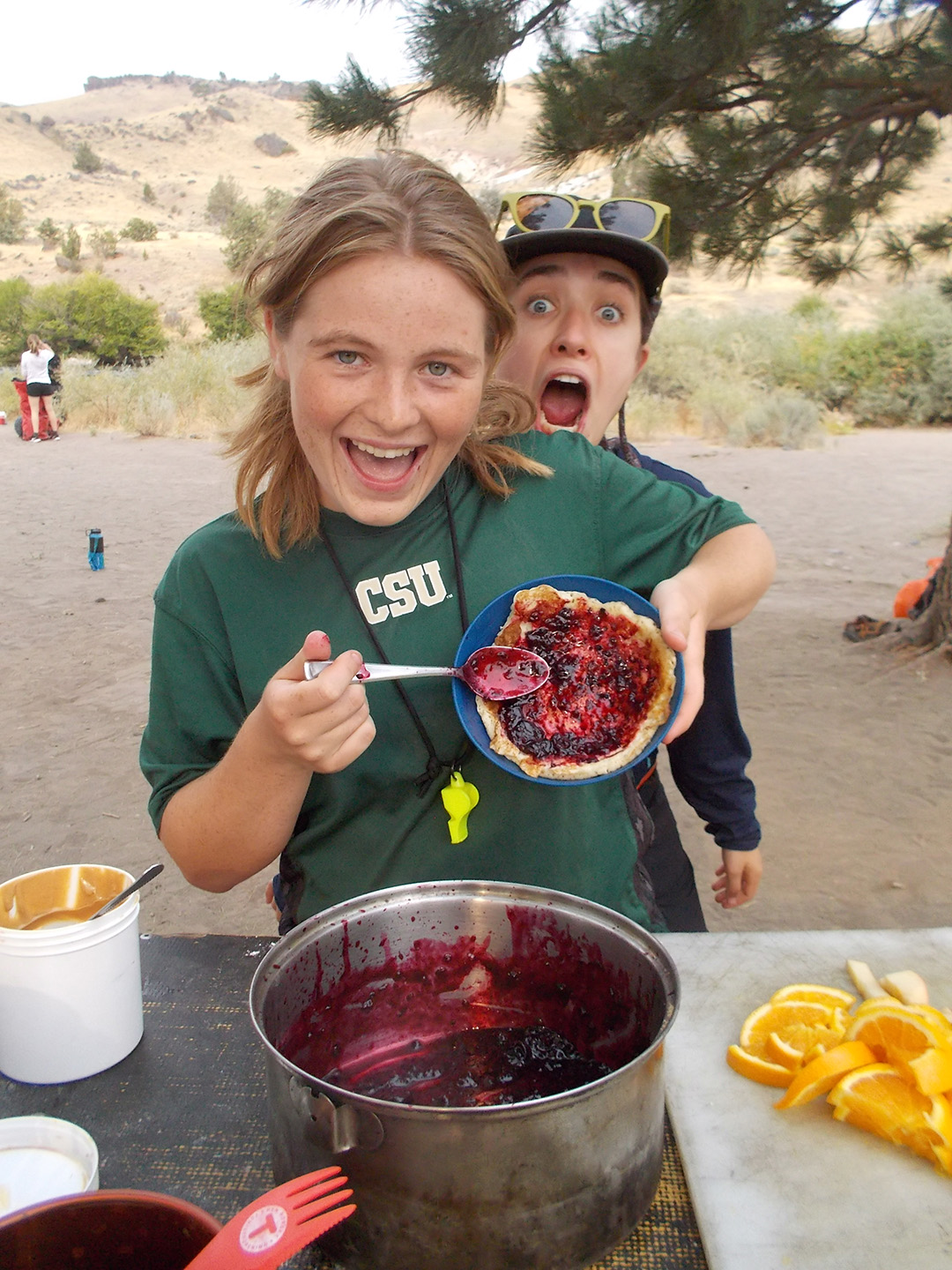
Photo: course camera
Course Overview
Sample Itinerary
- Day 1: Course Start, welcome and introductions, gear-check, course overview
- Day 2: Fitting and use of Personal Flotation Device, safety topics, captaining a raft, reading water, swim assessment, capsize drill, navigation, and camp-craft skills
- Day 3: Practice captaining a raft, scouting, throw bag drill, swimming activities
- Day 4: Opportunity for a day hike, rock jump, rock climbing, and/or rappelling. These activities are dependent on student and instructor outcomes for the course
- Day 5: Day run through the town of Maupin. Largest concentration of rapids
- Day 6: De-issue and clean gear; course closing and celebration
- Day 7: Transportation home
Rafting
Students will travel on the river in four to six-person paddle rafts, and learn to “captain” (maneuver) their paddle raft team through Class II to III rapids. After lessons in basic river travel and safety, students will learn to read currents, anticipate obstacles and scout rapids. Students will also learn river hydrology, swimming in currents and paddle techniques. There may also be an opportunity for short day hikes.
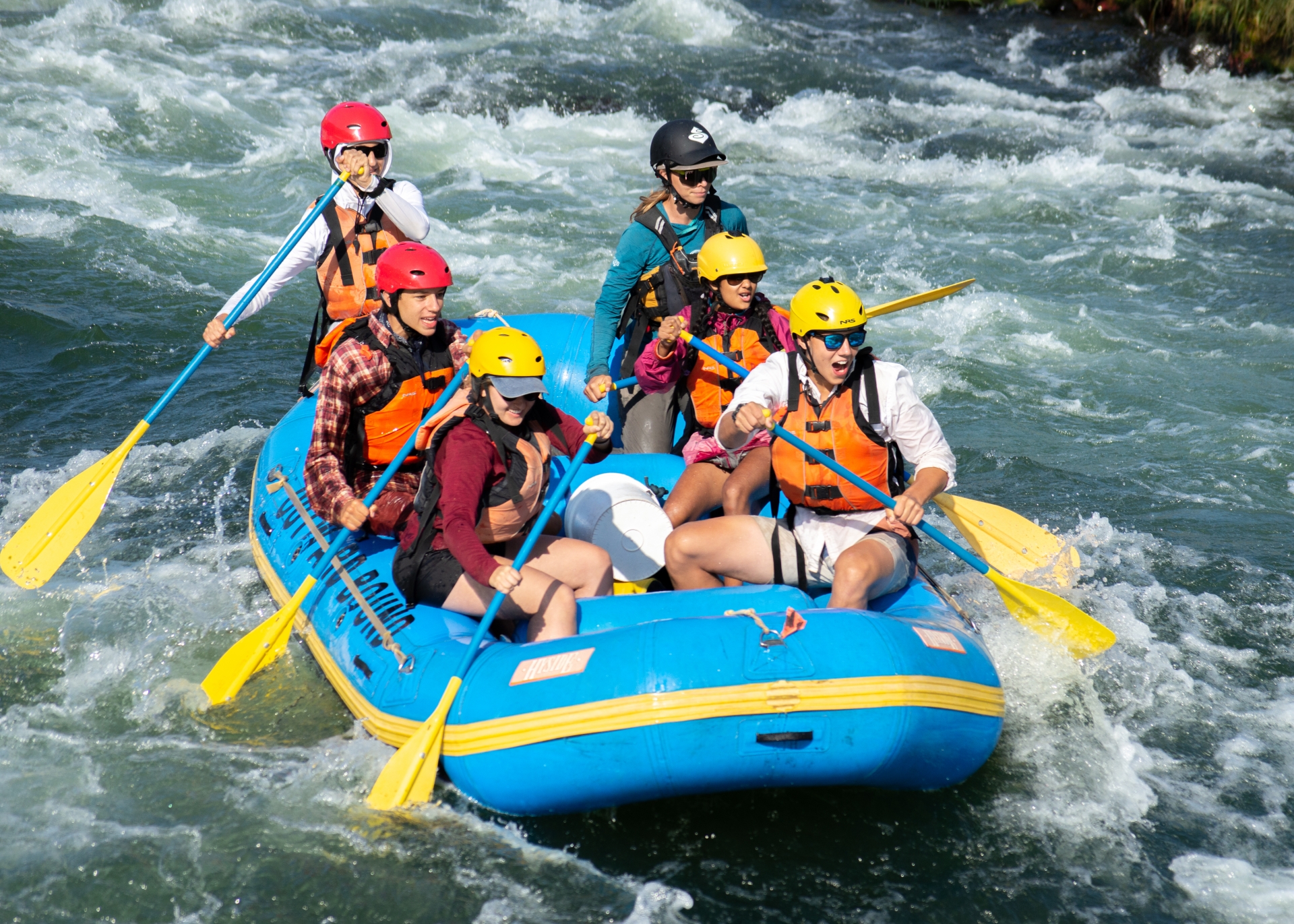
Photo: Colby Blue
Service
Service to others and to our environment is a core value of Outward Bound and is integrated into each course. Groups follow Recreate Responsibly ethics as they engage in acts of service while leading and supporting fellow participants. Designated service projects are coordinated with land managers like the US Forest Service, Bureau of Land Management and National Park Service to collaborate on land restoration projects. Additionally, students may have the opportunity to work alongside select social service agencies like nursing homes, hospitals and organic farms. Students see the impact of their actions firsthand, and they may develop a desire to continue service in their home communities.
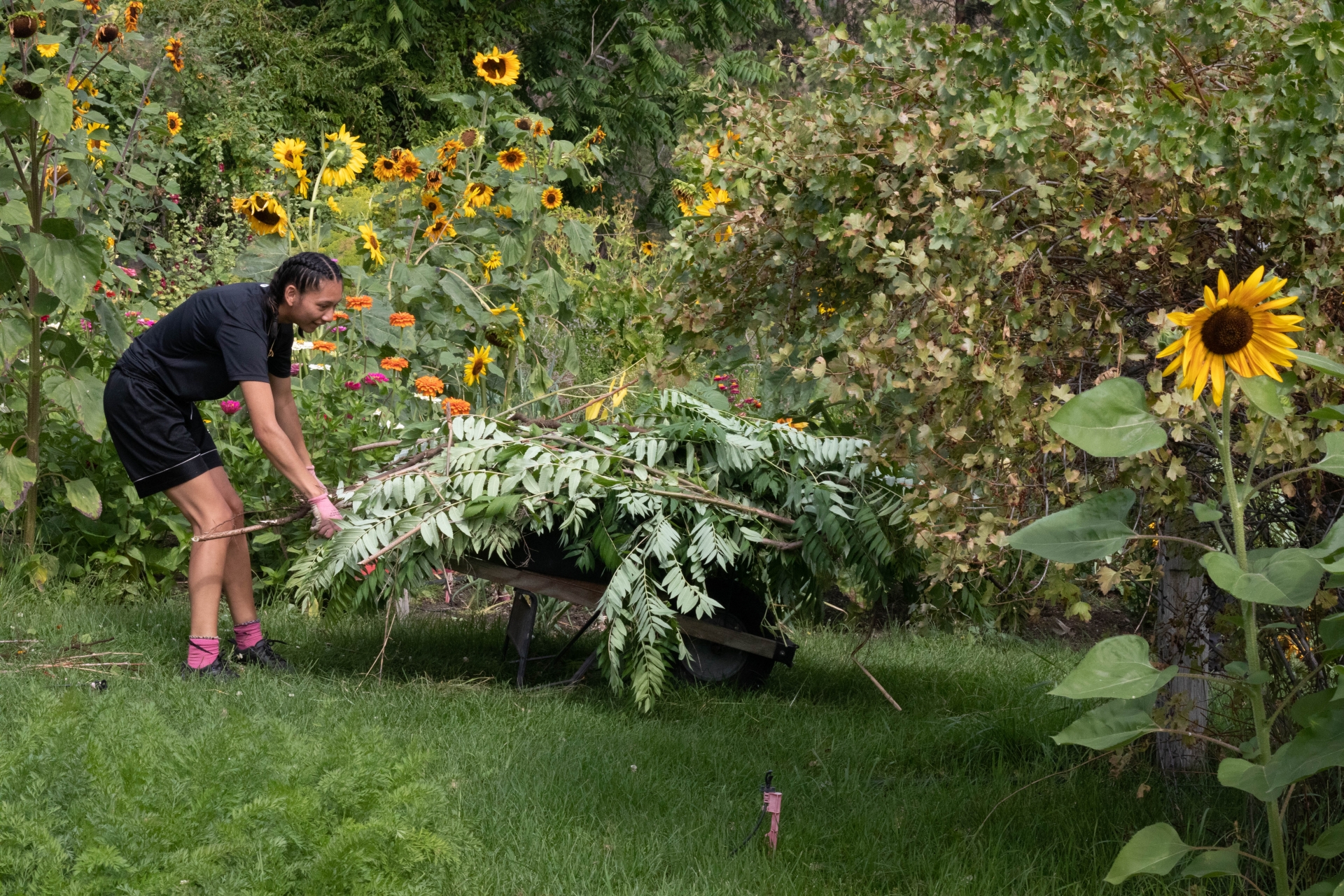
Photo: Radha Vyas
Solo
In order for profound learning to take place, students spend time reflecting on their experience, and Solo is that opportunity. The Solo experience provides an important break from the rigors of the expedition and gives students the opportunity to reflect on their Outward Bound experience. With sufficient food and equipment, students will set up camp at sites of their own, using the wilderness skills learned during the first portions of the course. The amount of time students spend on Solo is based on course length, weather, student condition, age and Instructor preference. Solo campsites are chosen to offer as much solitude as possible (yet be within emergency whistle-signaling distance of other group members). Most students spend their Solo time journaling, drawing, reflecting, thinking and resting as they process lessons of the course to focus on their goals for the future. Instructors check on each participant at regular intervals, as safety is always a top priority.
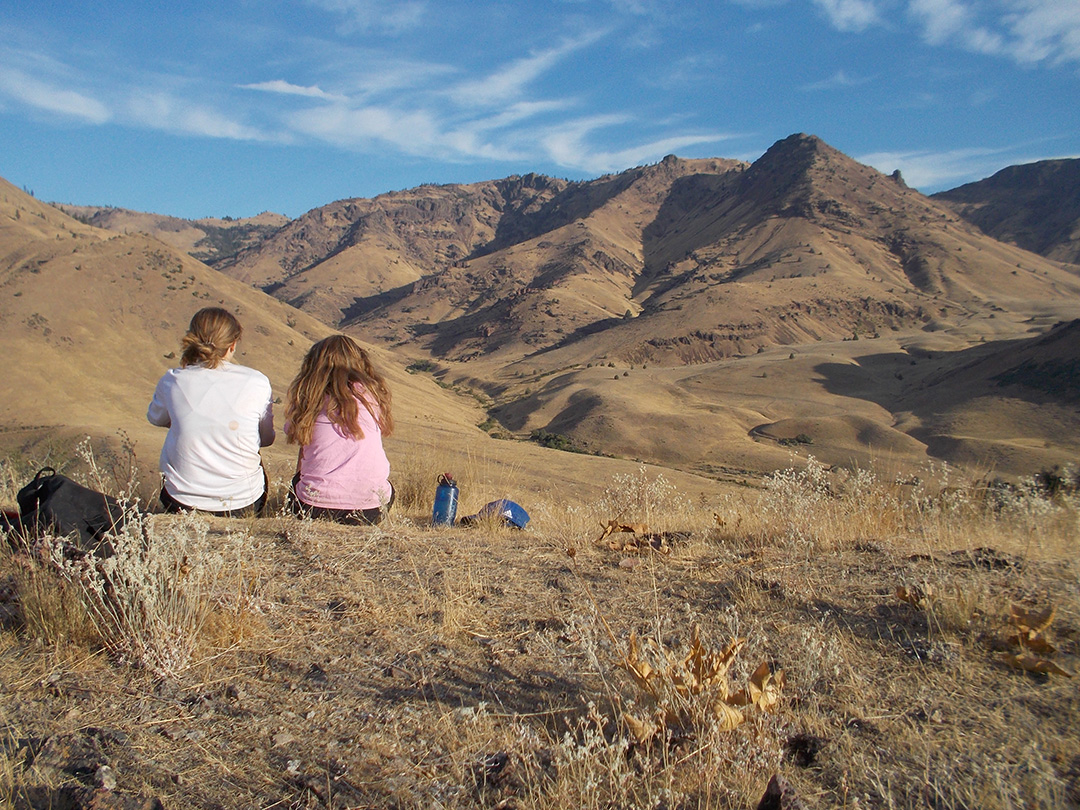
Photo: Course Camera
Outcomes
Outward Bound promotes character development, leadership, and service in the most engaging classroom possible … the wilderness. In real time, students experience the effects of their decisions on themselves and the other members of their group as they work to complete difficult tasks necessary for wilderness travel. Instructors challenge students to try new things, be vulnerable with their peers, and step outside their comfort zones in ways that they might not expect. Challenges may not only be physical, but also emotional as Instructors support students in developing their interpersonal skills. Instructors also provide individualized feedback to students that can be implemented on course, as well as afterwards upon return home to their communities.
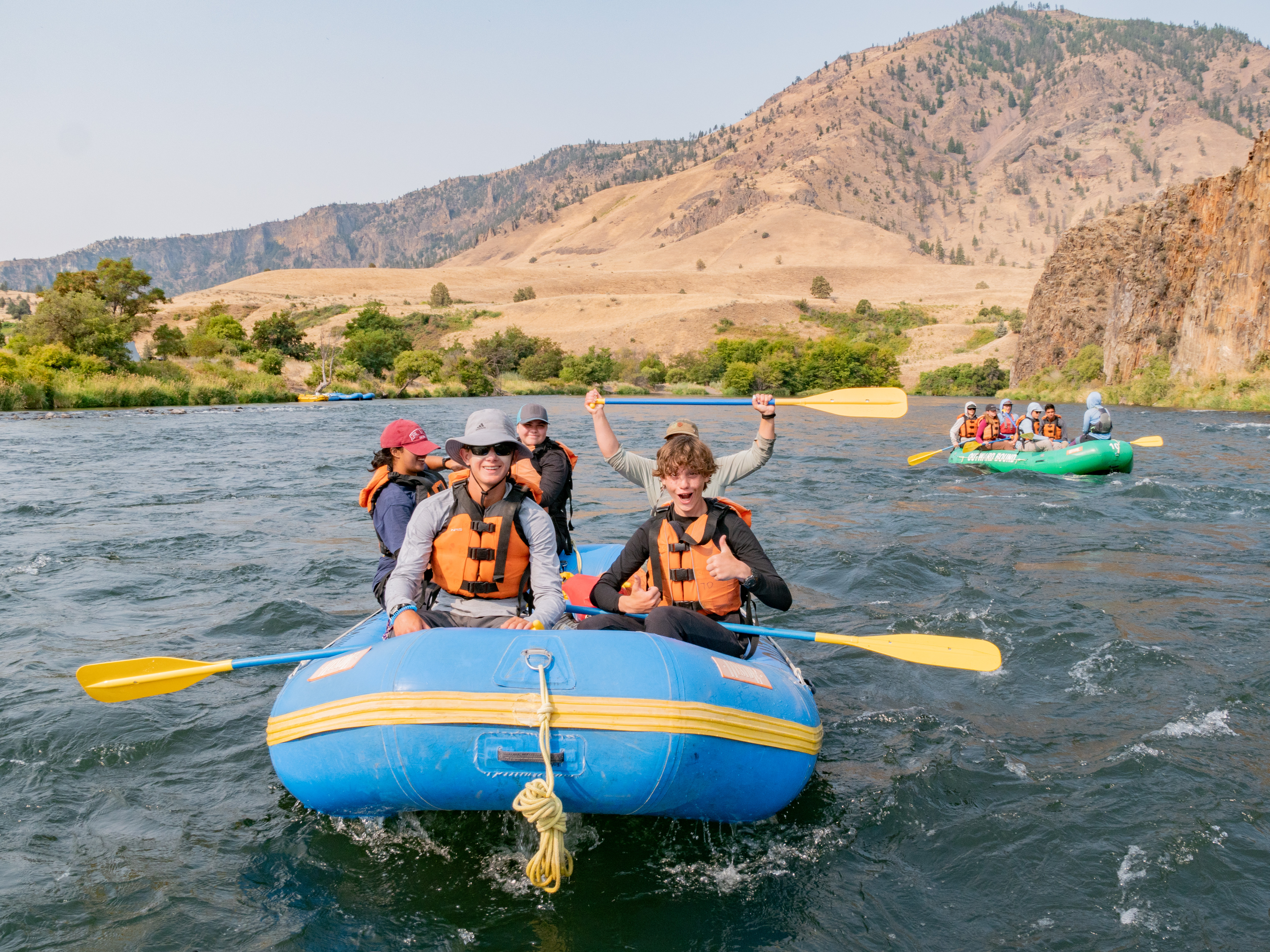
Photo: Ada Cohen
Course Area
Deschutes River, Oregon
The Deschutes River is part of the national Wild & Scenic Rivers System, flowing north from the Oregon Cascades to the Columbia River and then on to the Pacific Ocean. Courses generally travel anywhere from fifty to one hundred miles along the Lower Deschutes. The rapids on the Deschutes are rated to class IV, mostly class II-III. The group camps each night along the banks of the river. These regions are the ancestral lands of the Confederated Tribes of Warm Springs and the Tenino nations.
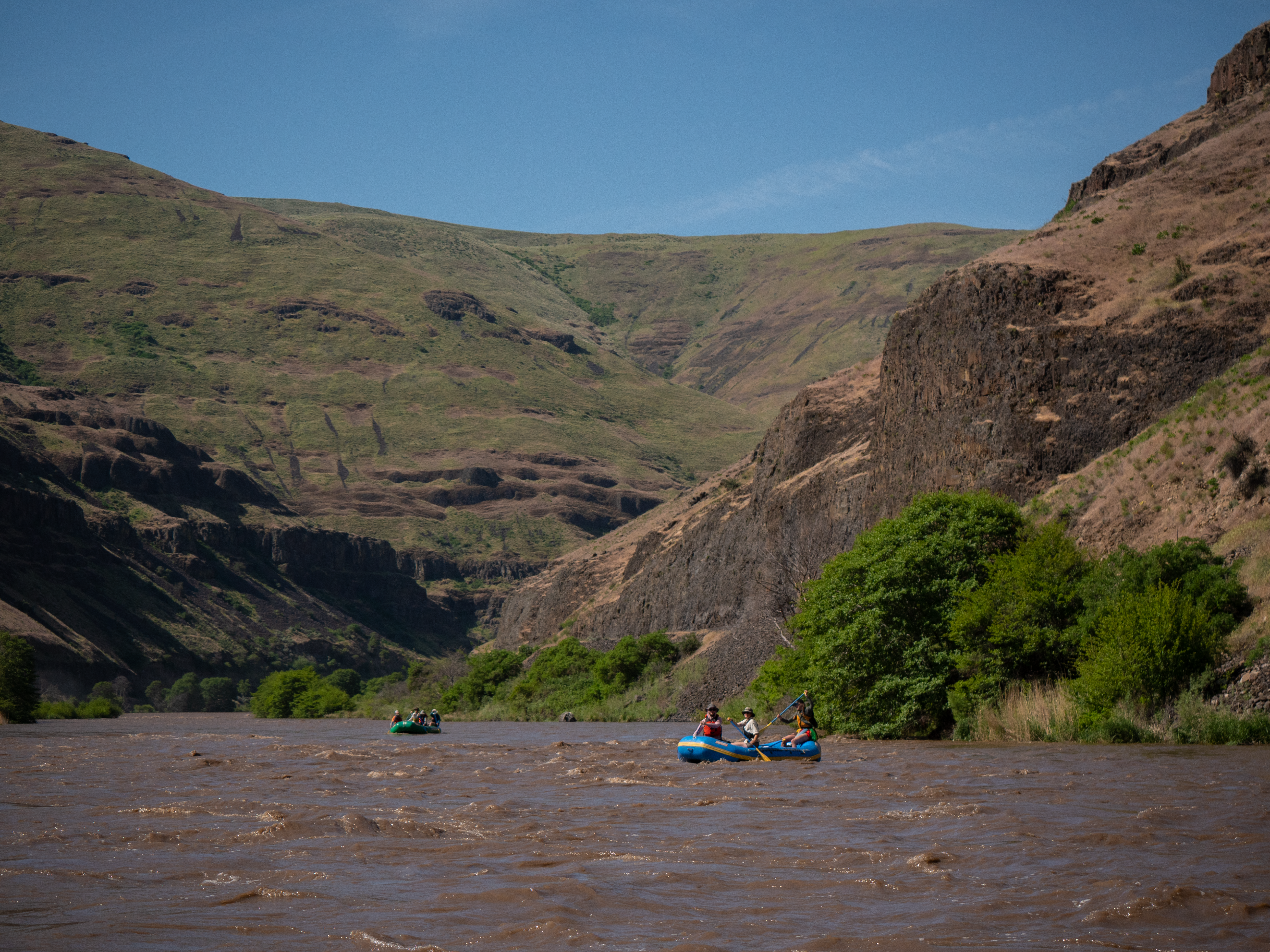
Photo: Ada Cohen
Want to sign up?
APPLY NOW >


